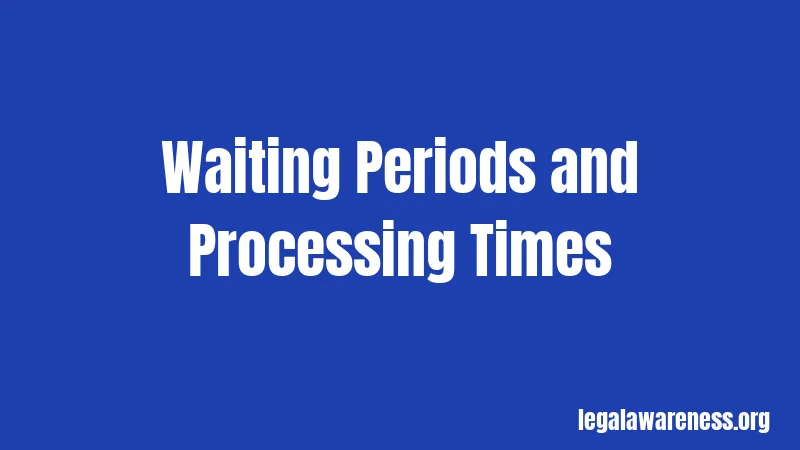Tennessee Marriage Laws in 2026: Complete Eligibility & Requirements Guide
Most people think getting married is just about finding the right person and saying “I do.” But Tennessee has some pretty specific rules about who can marry, how to get married, and what paperwork you need. Not following these rules? Yeah, that could cause serious problems.
Let me be straight with you. Tennessee’s marriage laws exist to protect you. They make sure both people are making the choice freely, that they’re old enough, and that everyone involved is doing things the right way. So let’s walk through exactly what you need to know.
What Is a Valid Marriage in Tennessee?

Okay, pause. Read this carefully. A valid marriage in Tennessee isn’t just two people deciding to live together. It’s a legal contract. The state recognizes it, protects it, and enforces it.
For a marriage to be valid in Tennessee, certain conditions must be met. Both people have to be of legal age (or have parental consent). Neither person can already be married. Both people have to consent willingly, without force or pressure. And honestly, that’s just the start.
Tennessee recognizes different types of marriage situations too. Some marriages happen with a ceremony and a license. Others are handled through common-law marriage rules. We’ll get into those details, but the main point is this: Tennessee cares about the requirements.
Basic Tennessee Marriage Laws
Age Requirements and Consent
Here’s where things get specific. You can’t just get married at any age in Tennessee. Here’s what you need to know.
In Tennessee, you must be at least 18 years old to get married without parental consent. That’s the basic rule. If you’re between 16 and 17, you can still marry, but both parents (or your legal guardian) must give written consent. The consent has to be notarized too.
What about younger than 16? Tennessee allows it, but only with special circumstances. You’d need parental consent AND approval from a Juvenile Court judge. Honestly, this is the part most people miss. The judge has to agree that the marriage is in your best interest.
Wait, it gets better. As of recent Tennessee law changes, the state has been working toward stricter age verification. If you’re planning to marry before age 18, plan ahead. You’ll need all those documents organized.
Not sure what counts as parental consent? It needs to be in writing, signed by both parents or guardians, and notarized. Pretty straightforward. This isn’t something you can do verbally or through text. The court takes it seriously.
Marriage License Requirements
Here’s where it gets practical. Before you can get married in Tennessee, you need a marriage license. No license? No legal marriage. Think of it like a driver’s license, but for getting married.
To get a marriage license in Tennessee, both people have to apply together in person. You can’t send someone else to get it. You have to go to the county clerk’s office in the county where you want to marry. Some couples get the license in their home county. Others get it where the wedding will happen.
You’ll need valid photo identification. A driver’s license, passport, or state ID works. If you don’t have photo ID, you can bring other documents, but call ahead. The clerk can tell you what works. You’ll also need your Social Security number. This helps the state verify information.
Okay, here’s an important one. You need proof of any previous marriages ending. If you’ve been divorced, you need your divorce decree. If you’re a widower or widow, you need the death certificate. This is why people sometimes get stuck. They forget this document.
Waiting Periods and Processing Times

Sound complicated? It’s actually not. Tennessee has a waiting period for marriage licenses. You get the license, and then you have to wait before the ceremony.
In Tennessee, there’s a 3-day waiting period. You get your license one day, and you can’t have the ceremony until three days later. That means if you get your license on Monday, the earliest you can marry is Thursday.
But here’s the thing. If you’ve been divorced or widowed, Tennessee doesn’t make you wait. You can marry immediately after getting the license. The state recognizes that you’ve been married before, so the waiting period doesn’t apply.
The license itself is good for 30 days. So you have a 30-day window to actually perform the ceremony. You get the license, wait three days, and then marry within 30 days. After 30 days, the license expires.
Who Can Perform a Marriage Ceremony?
Now, here’s where it gets interesting. Not just anyone can marry you in Tennessee. You need someone with legal authority.
In Tennessee, authorized individuals include judges, magistrates, and ministers. If you’re having a religious ceremony, your religious leader probably has the authority. Ministers, rabbis, priests, imams—if they’re ordained and recognized by their faith, they can marry you. Just check with your specific church first.
But wait, there’s more. If you don’t want a religious ceremony, a magistrate or judge can do it. You can also have a notary public perform the ceremony, but they have to have specific authorization. This is new-ish, so double-check with your county clerk on exact rules.
Honestly, this is the part that trips people up. Your best friend can’t legally perform your ceremony, even if they’re awesome. Your relative can’t either. The person has to have official authority. Make sure you confirm this before planning.
Marriage License Applications: What You Actually Need
Let me break down the exact documents and information you need. Wondering if this applies to you? Keep reading.
First, the personal information. Both people have to provide their full legal names, dates of birth, and current addresses. The clerk will ask about citizenship too. If either person is not a U.S. citizen, you’ll need additional documentation, like a passport.
You’ll need to declare whether either person has been married before. If yes, you need to explain how the previous marriage ended. Divorced? Bring the divorce decree. Widowed? Bring the death certificate. Annulled? Bring the annulment decree. The clerk needs proof.
You’ll also need your Social Security numbers. Both people. This helps with verification. The state checks background information to make sure no one is already married to someone else. Yes, they actually check this.
Next, the fees. Most Tennessee counties charge between $50 and $75 for a marriage license. Some counties are a bit higher, some lower. Call your county clerk to find out exactly how much. And bring either cash or a check. Not all offices take credit cards.
Blood Tests and Health Certificates
Here’s something that surprises people. Tennessee does NOT require blood tests for marriage. You don’t have to test for diseases. You don’t have to do a health screening. The state stopped requiring these tests years ago.
But wait, there’s a catch. The state strongly recommends that both people get tested for HIV and other STIs before marriage. It’s not required, but it’s smart. Think of it like an inspection on a used car. Not mandatory, but probably a good idea.
If either person has a communicable disease, Tennessee doesn’t prevent the marriage. But you do have to disclose certain information. Your partner deserves to know health information that affects them. This is about honesty and consent.
Common-Law Marriage in Tennessee

Okay, pause. This one’s important. Tennessee recognizes common-law marriage, but with very specific rules. Many people think if you live together long enough, you’re automatically married. That’s not how Tennessee works.
To have a valid common-law marriage in Tennessee, both people have to intend to be married. You can’t just accidentally become married by living together. You have to actually agree that you’re husband and wife. You have to present yourselves to the community as married. You have to live together as a married couple.
But here’s the tricky part. You still need witnesses. For a common-law marriage to be valid in Tennessee, there have to be witnesses who can testify that you acted as a married couple and intended to be married. This might be neighbors, friends, or family members. They have to be able to say in court, “Yes, I saw them living together as a married couple, and they told me they were married.”
This is where it gets serious. Common-law marriages in Tennessee can be recognized by the state, but you might need to prove it. If you split up and there’s no marriage license, you could end up in court fighting over property and custody. That’s why most people just get the license.
Who Cannot Get Married in Tennessee
Tennessee has restrictions on who can marry. Some of these are obvious. Others might surprise you.
You cannot marry if you’re already married to someone else. Period. Tennessee does not allow bigamy. If you try to marry while still married, that second marriage is invalid.
You cannot marry a close blood relative. This includes parents, siblings, grandparents, and grandchildren. Cousins can marry in Tennessee, but you can’t marry an aunt, uncle, niece, or nephew.
Okay, here’s one that matters. If either person is already in a legally binding marriage, you cannot marry. This includes marriages from other states or countries. If Tennessee recognizes that marriage, the new marriage is invalid.
You also cannot marry if you lack mental capacity. This means if a court has ruled that someone is mentally incapacitated and doesn’t understand what marriage means, they cannot marry. The state protects people who can’t make informed decisions.
Recent Changes to Tennessee Marriage Laws
Let me tell you what’s changed recently, because it matters. Tennessee has been updating some of its marriage laws to match modern situations.
One big change: Tennessee updated its rules around transgender individuals and marriage. When you change your legal name and gender marker, you can marry using your new legal identity. You don’t have to disclose your previous identity to get married.
Another change involves age verification. Tennessee has been cracking down on child marriage. While Tennessee still allows marriages with parental consent below age 18, the state has added stricter verification requirements. If you’re under 18, expect thorough documentation.
Tennessee has also clarified rules around military members marrying. Service members can still marry under Tennessee law, but there are specific rules about where they can marry and which official can perform the ceremony.
What Happens If You Marry Without Following the Rules?
Not sure what counts as a violation? Let me break it down. If you marry without following Tennessee’s legal requirements, your marriage might not be legally valid.
Let’s say you marry without a license. That marriage isn’t recognized by Tennessee. You’re not technically married. This might sound good if you’re trying to get out of it, but it creates problems. You can’t file taxes as married. You have no spousal rights. If your partner dies, you have no legal claim on their property. This can be really bad.
If you marry without proper consent (like a minor without parental consent and court approval), Tennessee might invalidate the marriage. But here’s the thing. The state might not do this automatically. You might have to go to court and get a judge to declare it invalid. That costs money and time.
Stay with me here. If you marry someone who’s already married, your marriage is null and void. You have no legal protection as a spouse. If you had kids together, custody could get messy. The state doesn’t recognize the marriage at all.
What if the person who married you wasn’t legally authorized? Your marriage might be invalid. This is rare, but it happens. If a notary married you but didn’t have the proper certification, a court might not recognize it.
Getting Your Marriage License: Step-by-Step
Here’s what you actually do. Writing to you directly here because this is practical stuff you need.
Step one: Find your county clerk’s office. You can marry in any Tennessee county. Most people choose their home county or the county where the wedding will happen. Look up the address and phone number.
Step two: Call ahead. Seriously. Ask what documents they need, what hours they’re open, and what the fee is. Some offices have specific times when marriage licenses are issued. Don’t just show up and hope.
Step three: Go together, in person, with all required documents. Bring your photo ID, Social Security number information, and any documents proving previous marriages ended. Bring the fee.
Step four: Complete the application. The clerk will ask questions. Answer honestly. They’ll record your information and issue the license.
Step five: Wait three days (unless you’re divorced or widowed).
Step step six: Get married within 30 days. Have your authorized person sign the license and perform the ceremony. The license has to be signed by the person who married you and both people getting married.
Step seven: The authorized person returns the signed license to the county clerk. This completes the legal process. Without this step, it’s not officially recorded.
Rights and Responsibilities After Marriage
Married in Tennessee? Here’s what changes legally. You’re not alone, this confuses a lot of people.
Once you’re legally married in Tennessee, you have spousal rights. You have the right to make medical decisions for your spouse if they’re incapacitated. You have inheritance rights. You can file taxes jointly. You can use your spouse’s health insurance. You have the right to your spouse’s Social Security benefits.
But you also have responsibilities. You’re responsible for any debts your spouse incurs during the marriage. You might be responsible for spousal support if the marriage ends. You have a legal obligation to provide financial support to your spouse if needed.
In Tennessee, marriage is a contract. The state recognizes it, enforces it, and uses it to determine property rights, custody rights, and financial obligations. This is serious stuff.
Divorce and Ending a Marriage in Tennessee
Let’s talk about what happens when marriage ends. Tennessee recognizes two types of divorce: contested and uncontested.
In an uncontested divorce, both people agree on how to split property, custody, and support. This is faster and cheaper. You might be able to do this without a lawyer, though a lawyer can help make sure everything is fair.
In a contested divorce, the two people disagree about something. Maybe it’s about property division. Maybe it’s about custody. When that happens, a judge decides. This takes longer and costs more money.
Tennessee has a residency requirement. At least one person has to have lived in Tennessee for six months before filing for divorce. Then you have to wait 30 days after filing before the divorce can be finalized.
Frequently Asked Questions
Can I marry my cousin in Tennessee? Yes. Cousins can legally marry in Tennessee. The state prohibits marriage only between very close relatives like parents, siblings, grandparents, and grandchildren.
What if I’m under 18 and want to marry? You can marry with parental consent if you’re 16 or 17. If you’re younger than 16, you need parental consent AND Juvenile Court approval. The judge has to agree it’s in your best interest.
Do I need a prenuptial agreement? Tennessee doesn’t require it, but you can have one if you want. A prenuptial agreement is a contract about property and finances. It’s optional, but many people use them to protect their interests.
How long is a Tennessee marriage license valid? The license is valid for 30 days. You have to get married within 30 days of getting the license, or you have to apply for a new one.
Can I marry someone from another country? Yes, but they might need additional documentation like a passport or visa status. Tennessee allows people of any citizenship to marry, but immigration law might have its own requirements. Ask the clerk about specific documents needed.
Does Tennessee recognize same-sex marriage? Yes. Tennessee recognizes same-sex marriage. The state treats all marriages equally under the law, regardless of the gender of the people getting married.
Do I need a witness for the ceremony? Tennessee doesn’t require a witness for most ceremonies. The person performing the marriage and both people getting married just need to be present. But having witnesses is smart for common-law marriage situations because you might need them later to prove the marriage was valid.
What if I was married before and don’t have my divorce papers? Contact the court in the county where you got divorced. They can give you a copy of your divorce decree. You’ll need this to prove your previous marriage ended. If you can’t find the papers, the clerk’s office can help.
Final Thoughts
Alright, now you know the basics of Tennessee marriage laws. Marriage is a big step, and Tennessee has rules to protect both people involved. Follow them, get your documentation in order, and you’re good to go.
When in doubt, call your county clerk. They’re helpful, they answer questions regularly, and they can tell you exactly what you need. They want you to do this right the first time.
Stay informed, stay safe, and make sure you’re following the rules. A valid marriage makes everything easier down the road. Now go plan that wedding.
